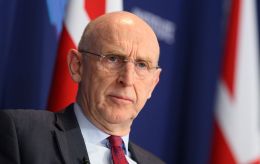Henry Kissinger's century: Legacy of one of the most influential U.S. diplomats
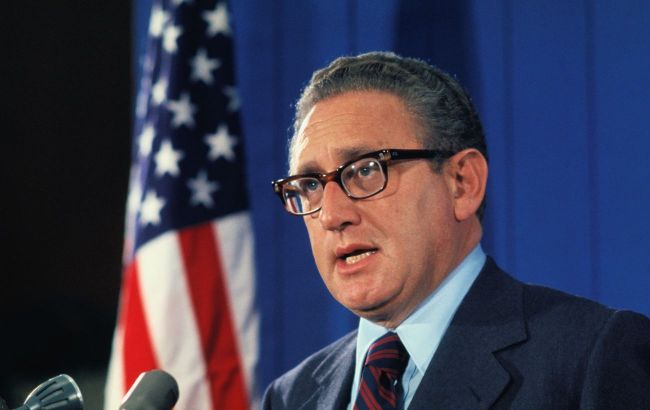 Photo: Henry Kissinger influenced U.S. foreign policy for decades (Getty Images)
Photo: Henry Kissinger influenced U.S. foreign policy for decades (Getty Images)
One of the most influential and controversial diplomats of the 20th century, Henry Kissinger, passed away on November 29, 2023, at the age of 100. He held the positions of Secretary of State and National Security Advisor under Presidents Richard Nixon and Gerald Ford and continued to be a prominent figure in U.S. foreign policy for a long time.
Read on RBC-Ukraine about Henry Kissinger's life, why he is called a legend of diplomacy, and the peace he proposed for Ukraine.
To prepare the story, the following sources were used: BBC, AFP, CBS News, and Kissinger's column for The Spectator.
As National Security Advisor and Secretary of State, Kissinger pursued a policy of détente (easing of geopolitical tensions) that led to improved relations with China and the USSR. His shuttle diplomacy helped end the Arab-Israeli conflict in 1973, and his involvement in the Paris Peace Accords negotiations extricated America from the devastating war in Vietnam.
His Realism in international relations, known as Realpolitik, was criticized as amoral. At the very least, Kissinger was accused of tacitly supporting the bloody coup in Chile and ignoring the dirty war waged by Argentine military forces against their people. Despite being awarded the Nobel Peace Prize, critics labeled him a war criminal.
Early years: Escape from the Nazis and World War II
Henry Kissinger was born on May 27, 1923, in the German city of Fürth, into a religious Jewish family. At birth, he was given the name Heinz, which was later changed to Henry in the United States. His father was a schoolteacher, and his mother was a homemaker. Fleeing persecution by the Nazis, the family emigrated to the United States.
The Kissingers settled in New York, in the Washington Heights area of Manhattan, where there was a large German and Jewish diaspora. Henry quickly assimilated into American culture but retained an Eastern-Franconian accent. After a year at George Washington High School, he transferred to evening school and worked during the day at a shaving brush factory.
After high school, he entered the City College of New York, studying accounting while continuing to work. Before completing his education, he was drafted into the army and became a U.S. citizen that same year. Initially assigned to study engineering, he later joined the 84th Infantry Division, where his proficiency in the German language was noticed, and he was transferred to military intelligence.
As part of his division, he participated in battles and undertook reconnaissance missions during the Ardennes Offensive in southern Belgium during the winter of 1944-1945. Afterward, during the U.S. advance in Germany, he was assigned to denazifying the city of Krefeld. He completed this task in 8 days and transferred to the Counter Intelligence Corps, where he tracked former Gestapo officers and saboteurs in Hanover.
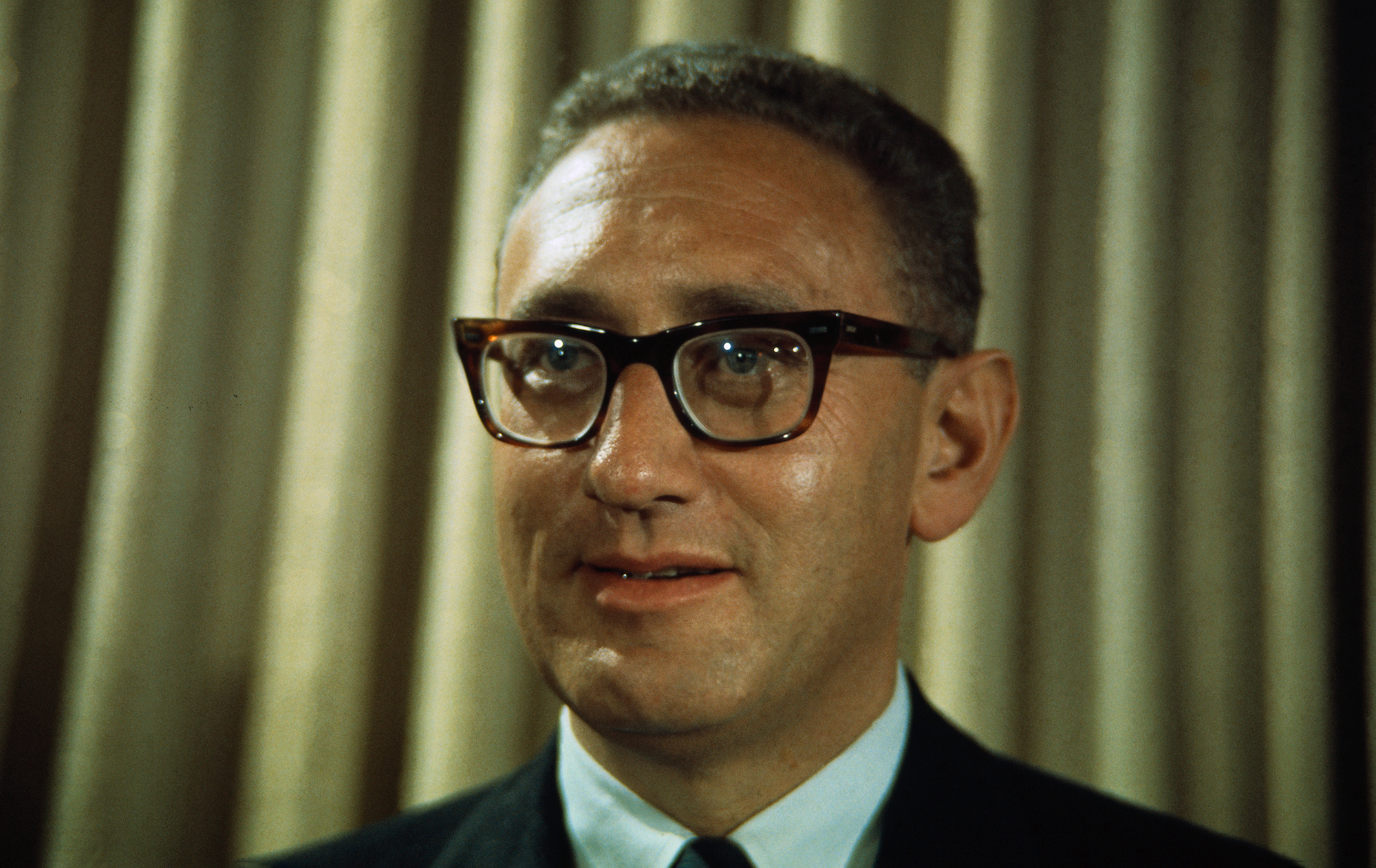 Photo: Kissinger built his diplomatic career after military service and studies at Harvard (Getty Images)
Photo: Kissinger built his diplomatic career after military service and studies at Harvard (Getty Images)
From June 1945, he was involved in denazifying the Bergstrasse region (Hesse), and in 1946, he became a teacher at the U.S. Army European Theater Intelligence School. He continued to work there for a year after completing his military service.
Education, early career, and Limited nuclear war theory
Upon returning to the U.S., Kissinger studied political science at Harvard, ascending the academic ranks. He earned a bachelor's degree with honors, and his 388-page undergraduate thesis remains Harvard's largest. In 1952 and 1954, he obtained master's and doctoral degrees.
While still a student, he organized an international seminar to unite young leaders worldwide in the struggle against communism during the Cold War. The seminar attracted the attention of the Central Intelligence Agency (CIA), which funded it for several years. Kissinger served as the seminar's director beteen 1951 and 1971.
Between 1958 and 1971, he led Harvard University's Defense Studies Program, created to advise senior military officials and policymakers. In 1955, he served as an advisor to the Operations Coordinating Board, a subsidiary of the U.S. National Security Council. He also served as the director of research on nuclear weapons and foreign policy at the Council on Foreign Relations in New York. His work resulted in the publication of the first book, "Nuclear Weapons and Foreign Policy," in 1957.
In the book, he argues that victory in a nuclear war is possible if it remains limited. According to the author, the tactical and strategic use of small-scale missiles could be entirely rational. The book brought attention to Kissinger, making him famous, and the so-called limited nuclear war theory still has supporters.
The following year, the Center for International Affairs was established at Harvard, serving as a direct channel of interaction with Washington. This center trained professionals for complex political and diplomatic missions, and Kissinger played a significant role in building relationships between university personnel and politicians. In addition to his academic activities, he worked as a consultant for various government agencies, as well as the U.S. National Security Council and the State Department.
By the 1960s, he was considered one of the most recognized, respected, and influential global strategic experts. He supported New York Governor Nelson Rockefeller and advised him while he ran for president as a Republican candidate in 1960, 1964, and 1968.
The newly elected President Richard Nixon (1969-1974) appointed him National Security Advisor. Kissinger officially took office at the beginning of 1969. His relationship with the president is considered complex. Nixon generally relied on the advisor but was prone to anti-Semitic remarks and suspicion of American Jews. The Cold War was in full swing then, as the Cuban Missile Crisis had just been resolved, U.S. troops were still in Vietnam, and the Soviet army had recently invaded Czechoslovakia.
Easing tensions with the USSR, rapprochement with China, and the Nobel Peace Prize for Vietnam
Kissinger served as National Security Advisor until 1975 and headed the U.S. Department of State between 1973 and 1977. This marked the first time one person held both positions simultaneously. During Gerald Ford's presidency (1973-1977), he continued as Secretary of State.
In U.S. foreign policy, Kissinger played a dominant role, establishing subordinate committees and expanding the National Security Council staff. Under him, the Council gained more authority, often overshadowing the Department of State, which Nixon distrusted.
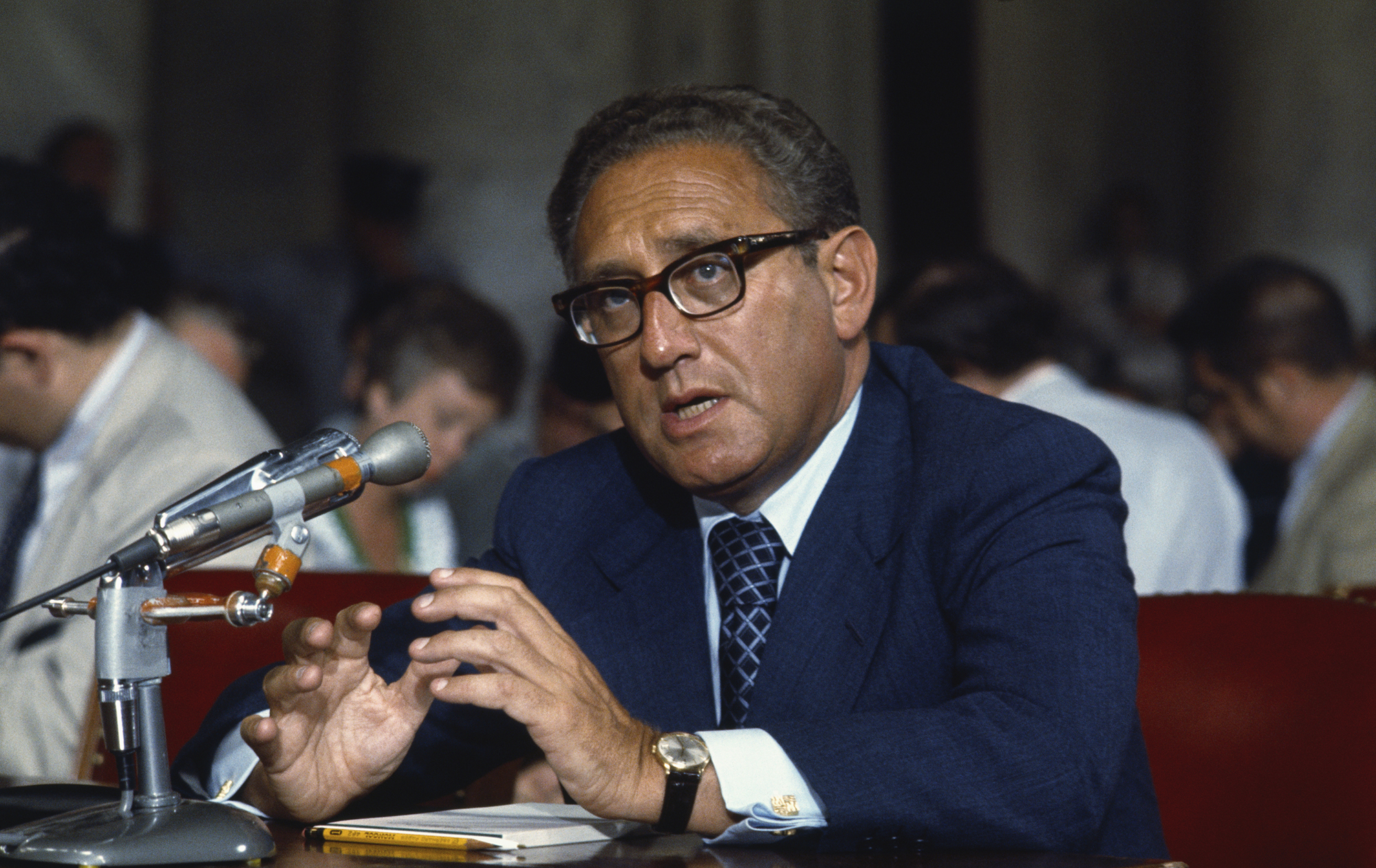 Photo: Kissinger contributed to the easing with the USSR and China (Getty Images)
Photo: Kissinger contributed to the easing with the USSR and China (Getty Images)
Throughout his diplomatic career, Henry Kissinger was at the center of negotiations with the USSR, China, Japan, Israel, Egypt, North Vietnam, and other countries. He initiated a policy of détente, leading to a relaxation of tensions with the USSR, closer ties with China, and the idea of eliminating communist movements in South America. His government's 40th committee conducted secret CIA operations between 1970 and 1973.
According to biographer Niall Ferguson, Kissinger's rapid ascent was explained by both timeliness and his networking ability.
"From the very beginning, Kissinger devoted notable energy to building a network that extended horizontally in all directions beyond the Washington Beltway, including the press, foreign governments, and even the entertainment industry," he noted.
- Easing with the USSR
Kissinger rejected the moral American approach to foreign policy, advocating for a more pragmatic doctrine based on a sober assessment of power balances. He discarded diplomatic approaches grounded in anti-communist ideology, preferring cooperation with Moscow and recognizing the USSR as a competing superpower.
Under his guidance, talks on limiting strategic arms began, resulting in the 1972 treaty. During the same period, several other agreements were signed, including accords limiting anti-ballistic missile systems and reducing offensive arms.
Before that, Kissinger established a confidential channel with Soviet Ambassador Anatoli Dobrynin. In these secret negotiations, the parties addressed differences on Vietnam, the Middle East, Cuba, and Jewish emigration. Contacts persisted, leading to the 1973 agreement on preventing nuclear war, and in 1974, Nixon visited Moscow for the second time.
In 1973, Kissinger told Nixon directly that pressuring Moscow to allow Soviet Jews to emigrate to Israel was not the goal of U.S. foreign policy.
"Even if they put Jews into gas chambers, it's not an American problem. Maybe a humanitarian problem," he said. After the records were released in 2010, the diplomat apologized, noting that his words were taken out of context.
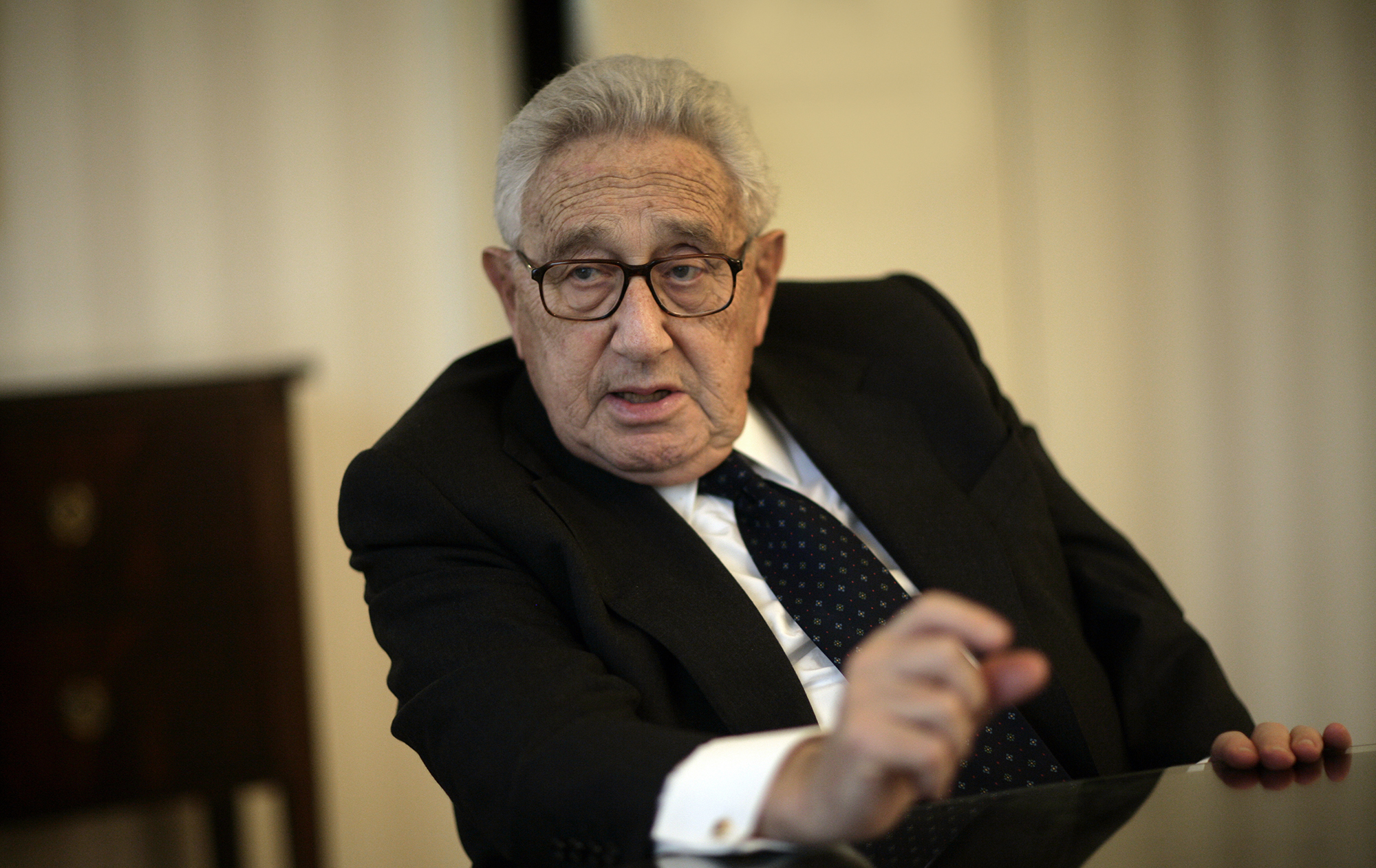 Photo: Kissinger received the Nobel Peace Prize for a peaceful agreement on Vietnam (Getty Images)
Photo: Kissinger received the Nobel Peace Prize for a peaceful agreement on Vietnam (Getty Images)
In Gerald Ford's administration, Kissinger continued to play a key role in foreign policy and was a crucial link between the U.S. president and Leonid Brezhnev at summits in Vladivostok and Helsinki, where the Helsinki Accords were signed.
- Rapprochement with China
Kissinger believed that the U.S. would benefit from approaching China, which could serve as a counterbalance to the USSR. He even coined the term "triangular diplomacy" for this purpose. Initial attempts to establish ties occurred in secrecy, not only from the public but also from the State Department.
Starting in the summer of 1969 for two years, Nixon and Kissinger exchanged messages with Chinese leaders Mao Zedong and Zhou Enlai through intermediaries. This resulted in Kissinger's secret visit to Beijing on July 9-11, 1971, when Nixon's visit to China was agreed upon. The U.S. president visited China for the first time in February 1972. At the negotiations, Nixon recognized Taiwan as Chinese territory and promised to withdraw troops once tensions eased.
This trip initiated diplomatic relations between the two countries after 22 years of hostility and contributed to easing tensions in Southeast Asia.
- Vietnam war and the Nobel Peace Prize
When Kissinger joined Nixon's administration, the Vietnam War (1954-1975) had been ongoing for about 15 years, becoming increasingly costly and unpopular. He directly approved carpet bombings in Cambodia, keeping it secret from Congress and the public. According to the Pentagon's report, the bombings, known as Operation Menu, resulted in the deaths of 150,000 to 500,000 civilians.
Until mid-December 1972, negotiations with North Vietnam had failed. Nixon ordered the bombing of Hanoi during Christmas, sparking protests worldwide. Afterward, negotiations resumed, and by the end of January 1973, peace agreements were signed in Paris.
"We bombed North Vietnam to make it accept our terms," Kissinger later said.
In the fall, he was nominated for the Nobel Peace Prize alongside North Vietnam's chief negotiator, Le Duc Tho. Many were outraged that the award went to someone who played a key role in organizing the Christmas bombings. Tho refused to accept the joint peace prize, arguing that Kissinger violated the ceasefire.
Kissinger and Ukraine: From "peace for territories" to "Ukraine must be in NATO"
Henry Kissinger maintained an interest in Russia for many years and, seemingly until the end, did not see Ukraine as an independent state. In his book "Diplomacy" (1994), he wrote that most leading figures in Russia refused to acknowledge the collapse of the Soviet empire and the legitimacy of Ukraine, the "cradle of Russian Orthodoxy."
In 2008, after a trip to Moscow, he stated that the U.S. should give Russia peace and soften its rhetoric. He also directly called for close cooperation, believing Vladimir Putin sought a reliable strategic partner and favored America. Kissinger considered Russian-Ukrainian conflicts as obstacles to establishing close U.S.-Russia strategic cooperation. He advocated for stopping NATO expansion to the east, essentially opposing Ukraine's NATO membership action plan.
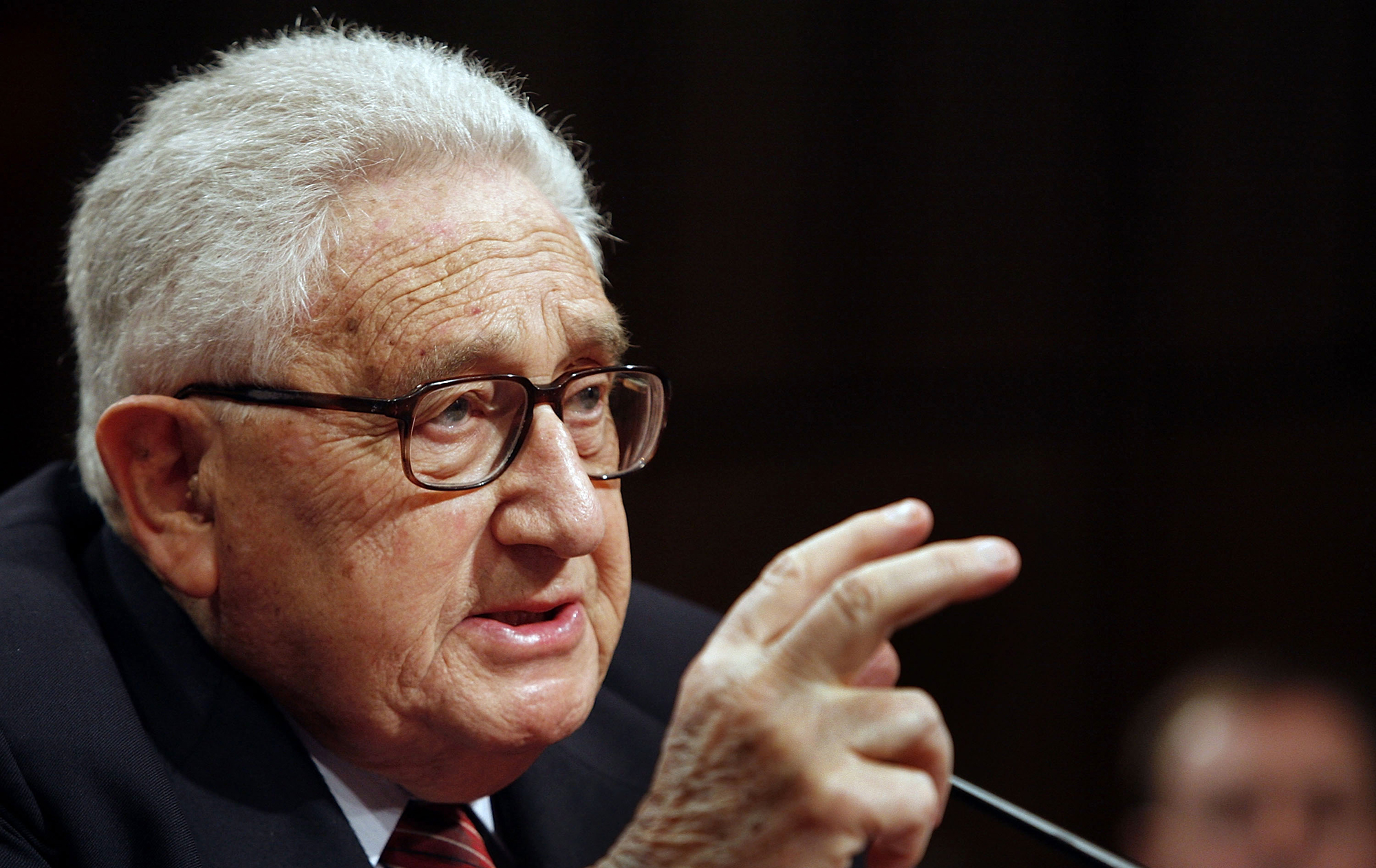 Photo: By the end of his life, Henry Kissinger changed his views on the future of Ukraine (Getty Images)
Photo: By the end of his life, Henry Kissinger changed his views on the future of Ukraine (Getty Images)
In 2014, he criticized the West's condemnation of the Crimea annexation and sanctions against Russia. In 2016, he advised Donald Trump to acknowledge Russia's "dominion" over Ukraine. Western media also revealed Kissinger's general plan for Ukraine. Essentially, Russia would become the guarantor of security in eastern regions with a gradual withdrawal of troops in exchange for the West not interfering in the Crimean issue. Recognition of Crimea's occupation was not discussed but would be implicit in U.S.-Russia negotiations.
By May 2022, amid Russia's full-scale invasion, Kissinger suggested Ukraine should abandon parts of its territory in exchange for peace with Russia. However, his words sparked criticism both in Ukraine and the West. In December, he proposed in a column for The Spectator that Russia needed to withdraw its troops to the borders by February 24, 2022, for the beginning of a peace process. He also suggested the referendums on "disputed territories." The key point was Kissinger for the first time spoke about the need for Ukraine joining NATO.
Speaking at the Davos Forum in January 2023, the diplomat acknowledged that after the Russian invasion, Ukraine's NATO membership was a desirable outcome.
"Before this war, I opposed Ukraine's NATO membership because I feared it would start precisely the process we are witnessing now. But now the idea of a neutral Ukraine in these conditions no longer makes sense," he said.
***
Minister of Foreign Affairs of Ukraine Dmytro Kuleba, reacting to Kissinger's death, characterized his legacy.
"The century of Henry Kissinger was not easy, but great challenges met his great and curious mind. He changed the face of diplomacy. Clear in thought, prolific in works. His intellectual legacy will continue to influence the understanding of diplomacy and the world order," he wrote.

